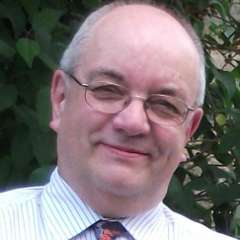There are few things more charming than the sound of good English spoken in a foreign accent. In his entertaining study Handel, the Man and his Music, Jonathan Keates points out that London’s most prominent musical immigrant appreciated the social value of never quite mastering English pronunciation: ”Evidence abundantly suggests that Handel, nothing if not shrewd, understood this and exercised it to the full”.
Less charming, sadly, was the challenge of deciphering the sounds of a polylingual cast in Susanna, the latest collaboration between the London Handel Festival and the Royal Opera’s Jette Parker Young Artists. With no surtitles (why ever not?) and a storyline that’s barely touched upon in the ROH’s advance publicity (“A virtuous woman wrongly accused by two men with ulterior motives” is all you get), it was no surprise to see so many people leave at the interval, 100 minutes into a long evening. Two of those told me, separately, that it was baffled frustration rather than musical concerns that drove them away.
Indeed, musically and theatrically the young artists made a decent fist of the evening. The hyper-energetic Patrick Milne conducted a stylish London Handel Orchestra with calisthenic precision and what seemed like a couple of extra arms to guide the singers, and in doing so he persuaded me that although Susanna is an oratorio rather than an opera, it has sufficient dramatic potential to support a good staging.
Isabelle Kettle’s production was a curious hotch-potch but rarely felt over-intrusive. An introductory design by Grace Smart belonged in a Brian Friel play, set as it was in the tumbledown kitchen of Susanna, a devout Catholic seasider (Masabane Cecilia Rangwanasha in a musically luscious central performance); but neither the stage revolve nor the fishing village locale was exploited to any scenic purpose. After the interval, with all clutter removed, Rangwanasha languished in a cage of the kind used to transport sick animals while other singers earned their place in the linguistic fog.
Along with the eponymous soprano, the evening’s most unbuttoned applause was reserved for two native anglophone artists: countertenor Patrick Terry, who sang Susanna’s loyal though much-absent husband Joacim to the exceptional standard we’ve come to expect from him, and the bass-baritone Michael Mofidian, superlatively good in the role of Chelsias, her father. The three of them made a family to reckon with.
Their colleagues were ill-served by a production that left them high and dry to negotiate the oratorio’s prolix libretto (the work of Anonymous) to the best of their abilities. A distinguished English language coach was credited but the scale of her project may have been too vast for the available rehearsal time, given the amount of text her students had to wade through. It would be unfair to hold any of the singers responsible for the audience’s woes; nevertheless, there was joy tinged with relief whenever William Spaulding’s superbly idiomatic Royal Opera Chorus dropped in for an ensemble number.




